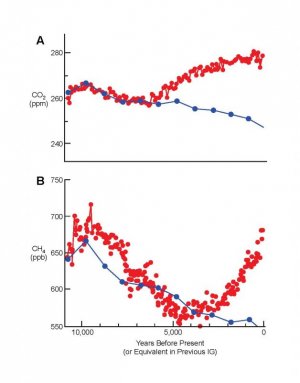hawkdon
Well-known Member
- Location
- Liberty MO
thing that everyone is hollering about....let's see the earth is 10 milliion yrs old or
so, we humans I think have been around maybe 3000 yrs....so earth went under
constant change before humans, but we humans have had a relatively short time
to ruin the thing.......what....how can this be true, how can we few people have caused
a disaster of drought/fires/shortages/loss of habitat/extinction of animals, all in only 3000 years or so.....so anyway there is my take......don
so, we humans I think have been around maybe 3000 yrs....so earth went under
constant change before humans, but we humans have had a relatively short time
to ruin the thing.......what....how can this be true, how can we few people have caused
a disaster of drought/fires/shortages/loss of habitat/extinction of animals, all in only 3000 years or so.....so anyway there is my take......don



